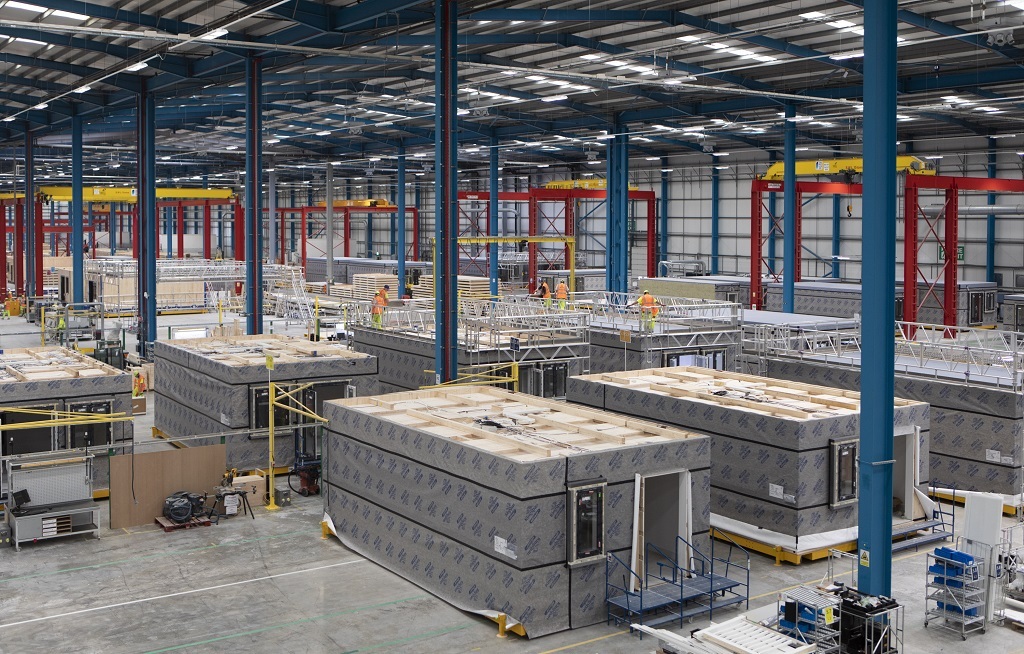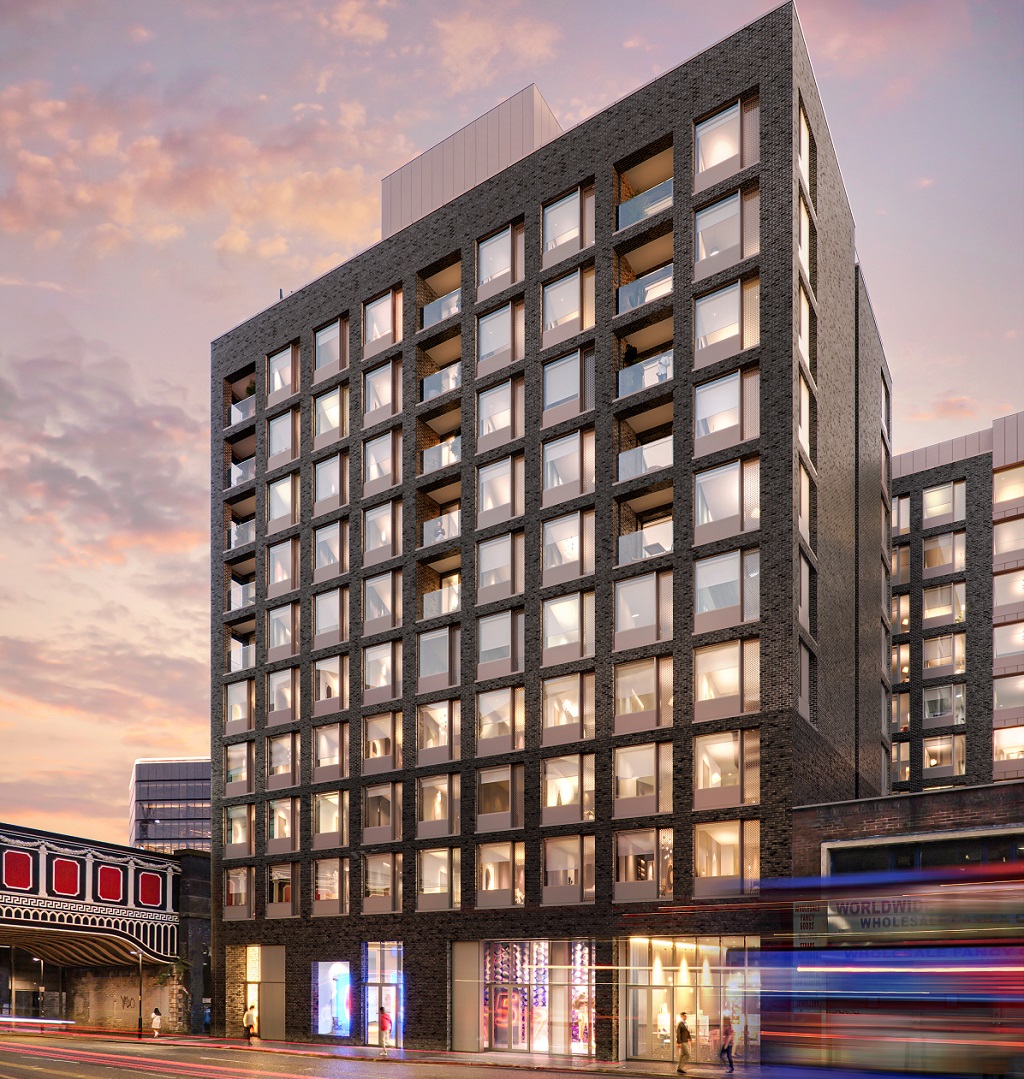The Subplot
The Subplot | Modular building falls to bits, old sheds, Bolton blues
Welcome to The Subplot, your regular slice of commentary on the business and property market from across the North of England and North Wales.
THIS WEEK
- Modular housing’s big moment: L&G’s decision to pull out of its Yorkshire mega-factory isn’t the end, but might be the beginning of the end
- Elevator pitch: your weekly rundown of who and what is going up, and who is heading the other way
MODULAR HOUSING DOESN’T FIT TOGETHER
Bright idea encounters reality, reality wins?
Legal & General Modular Housing has paused its entire plan. The Selby factory will fall silent. What’s next for Northern modular?
Legal & General is mothballing, or perhaps closing forever, its 550,000 sq ft modular housing factory at Selby. The insurer was one of the first big names into modular, and now it’s one of the first out. It exits in the wake of North West-based House by Urban Splash, the group’s modular arm, which collapsed into administration in May 2022 owing about £20m. L&G fired a few passing shots at convenient whipping boys, such as the planning system and Covid. Problems with foundations at one site, and stuff being left in the rain at another, was probably a more immediate cause of trouble. Either way, the truth is modular housing has a serious problem.
Economies of scale
Vertical integration involves huge upfront costs for any housebuilder, but for modular builders it’s worse because the factory itself is a huge upfront cost, and needs feeding with a steady and reliable flow of work without which the economies of scale of modular just don’t work. So far nobody has managed to keep a nice, steady flow of work, and hence nobody has made any money. Put it another way: “Without the necessary scale of pipeline it is not sustainable to continue producing more modules,” says Bill Hughes, chair of Legal & General Modular Homes.
Numbers game
To work at optimum efficiency L&G’s factory needed to turn out 3,000 units a year, more or less. This isn’t an amazingly big number. For instance, Top Hat, the Goldman Sachs-backed modular rival, aims for 3,500 by 2025. Crest Nicholson, one of the UK’s top 10 traditional housebuilders managed about 2,400 completions in 2020/21. But viewed in more specific context L&G’s optimum output begins to feel very challenging. The entire modular sector produced just 3,300 units in 2022. L&G’s output got to about 450 a year, way below economic capacity.
Unreality strikes
Hitting L&G’s target would have required an amazing market shift. So, for instance, the latest quarterly house building statistics show that between April and June 2022 there were 54,910 dwellings completed in the UK. So L&G’s plan aimed for 750 – approaching 1.3% of the entire market. As it happens, the current rate of modular output (as a proportion of all completions) is just 1.6% annually, so L&G would have to have scooped the pot. When L&G wrote its business plan, housing completions were more numerous – but the optimism is stark, even so.
Where’s the demand?
What a viable modular sector needs is some steady, reliable, long-term customers to keep the factories churning – council housing would be perfect, and would also help plug the UK’s six-figure gap in housing output. But the political reality is that we’ll all be dead before that happens. Businesses with cashflow to worry about can’t wait forever.
Opportunities
If it looks grim, it’s not grim enough to deter everyone. Smaller-scale, lighter-touch operations stand a chance: Lighthouse (IDMH Ltd) is operating from Sheffield, with an office in Warrington, and focusing on timber construction bespoke for clients (minimum order 50 units). The exhaustingly well-funded might also be able to tolerate the huge capex required: Top Hat, whose ambitious backers have deep pockets, is pumping out units from a new factory in Corby, and another in Derby. Lee Layton, head of operational real estate research at Colliers, visited Top Hat’s factory in Derby last week. “Whilst there are understandable questionmarks regarding how well modular construction fits with traditional build-to-sell models, the economies of uniformity, speed-to-completion, and highly credible ESG credentials make this a very attractive product in both the build-to-rent and social housing sectors,” he tells Subplot.
Because reasons
Yes, prefabrication makes sense, but even housebuilders who like prefabrication don’t particularly want to get into modular. Richard O’Brien is design director at Wigan-based homebuilder Northstone. Using a system of interlocking panels, Northstone is delivering sites in Bolton, Wigan, Ellesmere Port, and Barrowford, and have more in the planning system. “Never say never, but we’re not currently looking at modular as a full solution. What I think you’ll find is developers drawing on the lessons learnt and cherry-picking some of the best bits of the process. Full off-site modular would be too restrictive for us, where we’re often delivering a really wide variety of house types on just one site,” O’Brien tells Subplot.
Yesterday’s look
Behind all this sits another yet more intractable problem: modular houses are hard to customise, very hard to convert, all but impossible to extend, and inflexible from a design point of view (they have to be). They are likely to date badly, perhaps age badly. In a socialist utopia we’d be grateful for whatever we got because fairness trumps fun. But for now many homeowners find that a pain, and the big developers mulling modular blocks worry that if, say, they build modular hotels they will find residual value impaired because they are hard to convert into housing. Then there’s the issue of quality control, which seems curiously hard to crack.
Good idea, but…
Make UK Modular is the industry cheerleader. Chief executive Steve Cole tells Subplot: “Modular works well for build-to-rent, same for affordable housing, and local authority support would be good. We’re only aiming for 10% of the UK housing completions, so I don’t think we’re over capacity or there are too many providers.” There are lots of reasons why modular housebuilding ought to be a good idea: the shortage of apprentices, the improved speed and efficiency, the net zero carbon gains. But actually making it work in the real world – that’s not so easy.
 ELEVATOR PITCH
ELEVATOR PITCH
Going up, or going down? This week’s movers
Selling older industrial estates is the new buying older industrial estates; and in Bolton some political horse trading could have wide consequences. Doors closing, next stop the basement.
 Flight to quality
Flight to quality
Rotherham-based mega shed developer Harworth Group is trying to refocus its investment portfolio by selling off old sites and recycling the cash to help replace them with newly built ones from its own pipeline. The gamble is an exact reversal of received wisdom a few years back – when active asset management and clever land use was meant to turn old undervalued industrial estates into gold mines.
Widnes’ Towngate Business Park was off-loaded for £11.2m, Preston’s Four Oaks Business Park sold a multi-let unit for £12.3m, and a single unit for another £12.3m adding up to a net initial yield of 4.7%, which is keen enough. The result for Harworth is that 27% of its portfolio is now Grade A new stock, one step closer to the 100% target it set itself four more years to accomplish. Is it possible that by that time Harworth’s nothing-but-the-best treadmill strategy could itself be subject to a rethink?
 Bolton blues
Bolton blues
Next Tuesday will see Bolton Council gather for the first time after last week’s election with the aim of electing a new leader. In 2019 the Conservatives constructed an administration from a deeply hung council, and have run the show ever since. Now Labour has replaced the Tories as the largest party, although it is still short of an overall majority (Labour gained five seats, taking it to 26 out of 60).
The Conservatives (17 seats, after seven losses) will be pinning hopes on 11 Independent councillors of various localist stripes (three more than last time) and abstentions from the six Liberal Democrats. Labour says talks are now in progress. Whoever wins the leadership becomes one of 10 local authority members of the Greater Manchester Combined Authority.
The bigger picture is this: without a Conservative voice on the GMCA it gets harder for the GMCA, and Mayor Burnham, to get things done. Bolton’s Tories were sometimes a useful backchannel to government, and they will be missed. Burnham will also miss being able to claim multi-party buy-in for whatever GMCA does, thus neutralising a lot of the opposition. All of which means the Bolton Conservatives may have some unexpected goodwill on Tuesday evening.
Get in touch with David Thame: david.thame@placenorth.co.uk





L&G closes modular factory in same week L&G housebuilder Cala Homes buys timber frame company.? The problem for modular manufacturers is they need a good pipeline or develop the sites themselves. Costs also need to reduce and there needs to be more manufacturers to create competitive tension for the housebuilders to not be worried about throwing all their eggs into one basket. Timber frame has a history in the housebuilding sector and is tried and tested with volume/choice and an ability to adapt to varying house types. SIPs panels maybe the way forward if modular is to become a key provider, not a house delivered on a lorry and a factory waiting for whole house orders from a pattern book.
By Tim Berwood
Modular wise no mention of Starship in Birkenhead expanding recently?
By ST
Unlikely (given the experience of councils with private sector modular systems in the past) any renaissance in council house building will be underpinned by modular methods. “The issue of quality control, which seems curiously hard to crack.” – as it always was when you cede control of product to third parties – again, looking at the horrendous system building mistakes of the past.
By Sceptic
The quality control issue is a curious one since that’s the whole point of factory production – controlled environment, repeatable components should = consistent, high quality. These are clearly design or site based issues at installation stage.
By Anonymous
It’s the same old story about the quality of the end product. People will live in characterless boxes when they don’t have any alternative, but given a choice, they will always prefer something better, and be willing to pay the difference.
By Matthew Jones
Surely Local Authority handling of their planning application has to take some of the blame. All applications; especally large sites where the numbers cry out for modular, are taking far too long with some over a year to come to a decision… to then be refused due to the whims of party politics, nimbys and untrained Councillors. For modular to be a success we need an efficient planning system that can get housebuilding moving at a quicker pace so these factories are not sitting idley driving costs up.
By Aevis
Whoever mentioned here that big sites cry out for modular, couldnt be more wrong. Planning is a blocker, but for the right reasons. I am a councillor myself and will now back a modular planning application for multiple reasons.
– zero gains for local employment (even big builders subcontract out most things like plumbing and electrics to local companies)
– modular housing companies do not want to build or provision for affordable housing, starter homes and flats because those cant be built modular.
– no option to build bungalows due to manufacturing process. With dwindling numbers of much needed bungalows in councils this is another consideration.
– every house being 3 modules at least means that there will for every house be 3 trucks with absolutely giant modules arriving under police escort, and cause traffic mayhem. A medium size development is 250-300 homes so I’ll let you do the counting. Traffic chaos will be immense and a drain on already stretched police resources.
– i can come up with more but you catch my drift
By JE
@JE – no wonder we have a housing crisis with attitudes like that from local councillors. Incredible.
Modular homes can be delivered in bungalows – I’ve been in a number of modular factories and spoken to the companies.
They are also quick to erect, which mean much less time on site. Surely construction traffic and road closures for months is worse than a couple of lorries delivering once or twice a day?
Sounds like NIMBYism more than anything to me…
By Manc
The only way is for land price’s to fall so
prices can be brought back to affordable levels is a slump or recession. We’ve had cheap money with Quantatve Easing and low interest rates for 23 years.
By Mark Walklate
Sorry JE but you have completely misunderstood the benefits of modular house building. Modular construction is far less disruptive on site due to the majority of work being carried out in the factory making the on site work quicker, cleaner and more efficient. Due to the work being carried out in a factory environment away from the rain, snow, wind and mud associated with traditional construction sites the quality of the finished product is much better. Achieving net zero carbon homes will also be much easier with modular construction, the main issue is lack of orders and pipeline which all factory manufacturing systems rely on. As a councillor making planning decisions you need to know all the facts before jumping to the wrong conclusion.
By Anonymous
There are some game changing options out there which offer all the benefits of volumetric modular but with none of the drawbacks and are truly scalable. Take a look at Abode Industries solution, innovative, disruptive, scalable and crucially interchangeable which is the biggest problem of trying to scale up volumetric production. No NRE or setup delay is required between customers.
By John Arthur
Sorry for the closure but we understand this problem well and could help save this factory if there is still time and willingness to change procedures. Need means of confidential communication to protect our proprietary info! You
By Anonymous
I would just like to comment that, with 1800£ monthly rent to pay for a cramped studio flat in London that falls into pieces (the ceiling collapsed over tenants), YES, I believe there would be people willing to pay a cheaper flat to own. We’re forced to rent horrible, dangerous flats because we can’t afford to buy, let alone having “the choice to buy something better” like someone commented
By Anonymous
Why is the overpopulation issue consistently framed as an issue with housing supply?
the more houses we build, the more capacity for population growth
therefore building more houses exponentially increases the problem of housing shortage
for reference see the past hundred years of exponential population growth
population growth is a short term economic boost, however typically it’s unsustainable and unstable as it isn’t accompanied by infrastructure & quality of life improvements
By Will